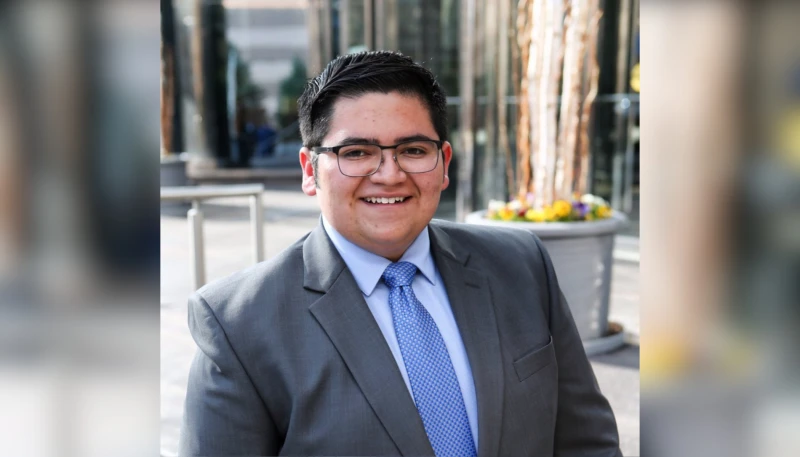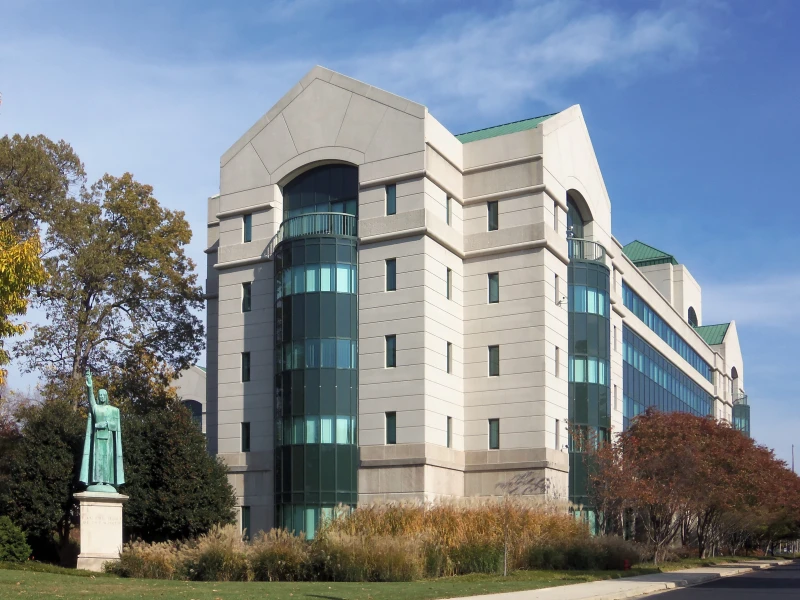

Kendrick Castillo, the lone fatality at the STEM School shooting in Highlands Ranch, Colorado on May 7, 2019. / Credit: Courtesy of John and Maria Castillo
Denver, Colo., Sep 4, 2025 / 07:30 am (CNA).
Kendrick Castillo was 18 years old when he tragically died in the STEM School shooting in Highlands Ranch, Colorado on May 7, 2019. He died, witnesses said, after he jumped up in the line of fire and ran to stop one of the shooters with a couple other students. He was the lone fatality. Now, this young man could become a saint in the Catholic Church.
The Diocese of Colorado Springs — the diocese to which the city of Highlands Ranch belongs — announced that a petition to open his cause for canonization has been received.
“I am very grateful for the time and effort that Father Gregory Bierbaum and Father Patrick DiLoreto of St. Mark Parish in Highlands Ranch have spent gathering evidence and conducting interviews to prepare for a petition to open the cause for canonization of Kendrick Castillo. Although I have just begun to review the information submitted, it seems clear that Kendrick was an exceptional young man,” Bishop James Golka, of the Diocese of Colorado Springs, said in a statement.
He added, “As we study and discern how to approach the massive undertaking of promoting a canonization cause, I ask all the faithful to keep Kendrick’s family in their prayers. I also encourage everyone to privately invoke Kendrick’s intercession, praying especially for the youth in our diocese, that they emulate his example of fortitude and generosity.”
While Castillo had many connections to the Archdiocese of Denver — attending Notre Dame School in Denver, serving as a Squire of the Knights of Columbus in a Denver council and having his funeral at St. Mary Parish in Littleton — the Church looks to where the individual’s life ended to determine which diocese has the right to petition for canonization.
Therefore, since Castillo died in Highlands Ranch, which belongs to the Diocese of Colorado Springs, it is this diocese’s responsibility to conduct the investigation. Golka and the diocese will now review and examine the evidence collected and if approved, the petition will be sent to Rome for further consideration.
Father Patrick DiLoreto, the parochial vicar at St. Mark Parish in Highlands Ranch, is one of the individuals involved in gathering evidence for Castillo’s cause of canonization. He and the parish’s pastor, Father Gregory Bierbaum, both experienced Castillo’s story coming up in prayer for months, DiLoreto told CNA in an interview.

“After learning that the issue had been on both of our hearts, we felt this was a prompting by the Holy Spirit to investigate further,” he said. “After interviewing his parents and reviewing the manner in which he died we believed there was reason to petition the Diocese to open a cause for him.”
DiLoreto explained that the priests believe that Castillo qualifies for the category of “Offering of Life.” In a 2017 Motu proprio, Pope Francis declared a new category of Christian life suitable for consideration of beatification called “offering of life” — in which a person has died prematurely through an offering of their life for love of God and neighbor.
Though similar to martyrdom, this definition fits those Servants of God who have in some way given up their life prematurely for charity, though the circumstances may fall outside the strict definition of martyrdom, which requires the presence of a persecutor.
“He [Castillo] courageously threw himself at one of the school shooters without hesitation allowing other students to follow and subdue the gunman. This saved the lives of his fellow classmates when in any other circumstance, there would surely have been more deaths on that day,” DiLoreto expressed.
When discussing Castillo’s faith, DiLoreto called him “a pious young man who cared deeply for his faith and desired to be a witness of the faith for others, especially those who had never encountered our Lord.”
“We have seen this through the devotionals which he had,” he continued. “For example, he always carried his rosary with him — seeing how well-worn the rosaries were, it can also be inferred that he used them frequently. He had one of his rosaries on him when he was murdered which has since been gifted to a classmate who was in the room.”
Actively served in his parish
DiLoreto also shared that Castillo served at Mass and funerals, actively volunteered at his parish, and attended the funerals of individuals he didn’t even know just to pray for the deceased and their family.
“As the country faces more and more persecution of Christians especially in these horrific school shootings, such as the one last week in Minnesota, we can look at the heroic examples such as Kendrick and the children who protected others for inspiration,” DiLoreto said.
“The elderly can look to such young examples as hope for the future generations where there may be skepticism over the future of the Church. Young people can look to such examples and be inspired that they too can live a life of virtue and that they can become saints,” he added. “It is not something that is out of reach for them if they are willing to build up virtue through acts of charity and the grace of the sacraments.”
The canonization process is a lengthy one with many steps. A large part of the process is determining if the individual has miracles attributed to his or her intercession. The Church requires one verified miracle for beatification, after which the individual is referred to as a “Blessed.” After this, another verified miracle is needed for canonization, at which point they become a “Saint.”
Read More



